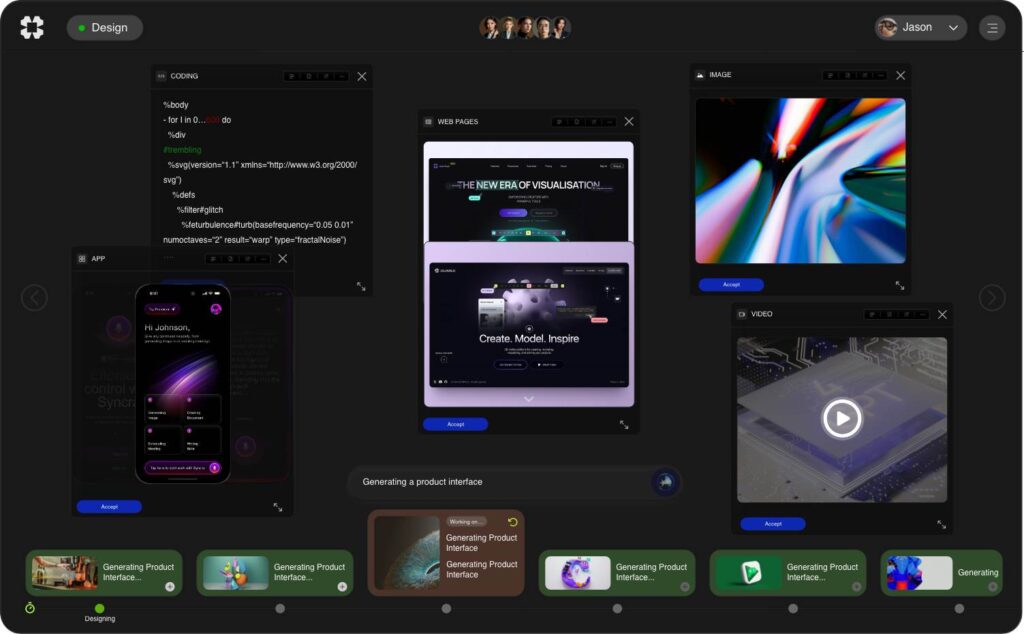The proliferation of artificial intelligence (AI) tools has dramatically reshaped the way businesses interact with their customers. These advanced technologies are driving a paradigm shift in customer service strategies, with companies increasingly adopting AI-driven solutions to enhance the customer experience. This transformation is not only about efficiency but also about maximum engagement and satisfaction, enabling businesses to stay competitive in a rapidly evolving digital landscape.
.
## The Emergence of AI-Driven Customer Experience
The modern consumer is more discerning than ever, with high expectations for service speed, relevance, and personalization. Traditional customer service methods often fall short in meeting these demands. Enter AI-driven customer experience technologies, designed to bridge this gap. By using AI algorithms and machine learning techniques, businesses can analyze vast amounts of data to gain insights into customer behavior, preferences, and needs.
.
Research from McKinsey & Company highlights that organizations integrating AI into their customer experience strategies can increase their customer retention rates by up to 25%. This is primarily achieved through improved personalization, reducing response times, and predicting customer needs before they even arise.
.
## AI Digital Assistant Tools: The Future of Customer Support
One of the standout products of AI-driven customer experience is AI digital assistant tools. These tools, often manifested as chatbots or virtual assistants, are designed to interact with customers in a seamless and intuitive manner. They use natural language processing (NLP) and machine learning to understand and respond to customer inquiries in real time, often mimicking human conversation.
.
For instance, ChatGPT, built on OpenAI’s GPT technology, is widely recognized for its ability to hold conversations and provide accurate, relevant information. Many businesses have adopted such AI digital assistants to enhance their customer service offerings. According to a study by Gartner, by 2025, 75% of customer service interactions will be powered by AI, highlighting the growing reliance on these tools in the industry.
.
## Trends in AI Tools for Customer Experience
1. **Personalization at Scale**: One of the biggest trends is the push towards personalized customer experiences facilitated by AI tools. Companies like Amazon and Netflix leverage AI to recommend products and content tailored to individual user preferences. This enhances user satisfaction and increases conversion rates significantly.
2. **Multi-Channel Engagement**: Consumers today expect to interact with brands across various platforms—be it through social media, email, or direct messaging. AI tools are being developed to provide consistent customer experiences across these channels, ensuring that interactions are cohesive whether they’re on Facebook Messenger or a company website.
3. **Predictive Analytics**: Businesses are increasingly using AI for predictive analytics, allowing them to foresee future customer behaviors and trends. For example, companies can identify when a customer is likely to churn and proactively engage them with targeted offers or support.
4. **Automated Customer Insights**: AI tools are now capable of gathering and analyzing customer feedback in real-time. This means businesses can make immediate adjustments to their strategies based on customer sentiment, leading to quicker resolutions and improved satisfaction.
.
## Industry Applications of AI Tools
Various industries are recognizing the potential of AI tools to optimize customer interactions. Here are a few examples:
### Financial Services
In the banking sector, institutions are using AI chatbots to handle customer inquiries regarding account balances, transactions, and loan processes. Companies like Bank of America have successfully integrated such assistants, resulting in reduced wait times and increased customer satisfaction.
### Retail
Retailers harness AI digital assistant tools to enhance both online and in-store experiences. Sephora’s virtual assistant allows customers to explore makeup products and receive personalized recommendations based on their skin tone and preferences. This strategic use of AI has increased engagement and sales conversion rates in the competitive retail space.
### Telecommunication
Telecom companies also utilize AI in managing customer complaints and service requests. For instance, Vodafone employs AI-driven chatbots to troubleshoot issues and guide customers through service disruptions. This not only minimizes call center overload but also enhances customer experience by providing instant solutions.
.
## Technical Insights: Building a Robust AI-Driven Customer Experience
1. **Integration with CRM**: For AI to be effective in enhancing customer experience, it must integrate seamlessly with Customer Relationship Management (CRM) systems. This integration allows AI tools to access and analyze comprehensive customer data, leading to more informed interactions.
2. **Data Privacy and Security**: With the increasing reliance on AI tools, ensuring data privacy is paramount. Companies must invest in secure systems and practices to protect customer data, especially considering stricter regulations such as GDPR.
3. **Continuous Learning and Improvement**: Machine learning models require continuous updates and training to remain effective. Businesses should foster a culture of continuous learning, where AI tools evolve through feedback and growing datasets.
4. **Human-AI Collaboration**: Instead of replacing human agents, AI should be viewed as a complementary tool that fosters collaboration. By handling routine inquiries, AI allows human agents to focus on more complex issues that require emotional intelligence and problem-solving skills.
.
## Industry Use Case: Transforming Customer Experience in E-commerce
A prominent use case that illustrates the efficacy of AI tools in enhancing customer experience comes from the e-commerce giant Alibaba. The company employs sophisticated AI algorithms that analyze user behavior on its platform to offer personalized product recommendations.
.
In addition, Alibaba’s customer service features an AI digital assistant that assists users in navigating the website, finding products, and addressing any concerns. As a result, the company reported a staggering increase in customer satisfaction scores and reduced response times, demonstrating the profound impact of AI tools on customer experience.
.
## Conclusion: The Future of Customer Experience with AI Tools
The integration of AI tools into the customer experience landscape is paving the way for enhanced service delivery and deeper customer engagement. AI-driven technologies and digital assistants not only streamline processes but also create meaningful interactions that resonate with consumers.
.
As we move forward into a tech-savvy future, businesses that invest in AI tools will undoubtedly gain a competitive advantage. By understanding customer needs through data, delivering personalized service, and maintaining a reliable support system, companies are set to redefine customer experiences for the better.
.
In conclusion, the implementation of AI tools is not just a trend—it’s a revolution that is reshaping the very fabric of customer interaction. For organizations aiming for sustainable growth and customer loyalty, embracing and adapting these technologies will be crucial in the coming years.
.
**Sources**
1. McKinsey & Company: AI in Customer Service.
2. Gartner: Predicting the Customer Journey with AI Tools.
3. Bank of America: AI Chatbot Integration.
4. Deloitte: Consumer Engagement Trends in Retail.
5. Alibaba Group: Transforming E-commerce with AI.




















